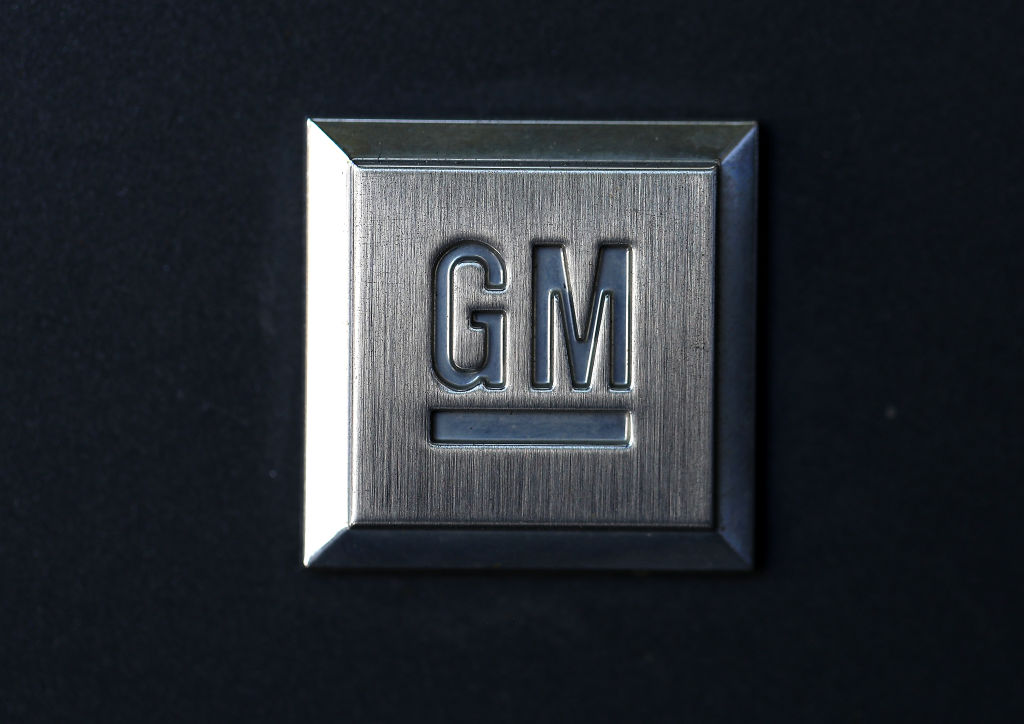'Herculean efforts' by Ford, GM to produce ventilators 'might not be enough'


A free daily email with the biggest news stories of the day – and the best features from TheWeek.com
You are now subscribed
Your newsletter sign-up was successful
Ford and General Motors, two longstanding titans of the American automobile industry, are working rapidly around the clock to produce potentially life-saving ventilators for patients suffering from the novel COVID-19 coronavirus, but there are two major issues that could render their attempts ineffective in the end, The Washington Post reports.
First, they may simply not have enough time. The companies are working fast, but they may not have started early enough. So, by the time they produce the necessary amount of ventilators, many places around the U.S. may have already experienced the peak of the pandemic, which is expected to come sometime in April. "Even though we are moving mountains ... and we are moving as fast as we can," said an auto executive involved with the process, "these herculean efforts might not be enough."
For example, the University of Washington's Institute for Health Metrics and Evaluation estimates the U.S. will need 32,000 ventilators by mid-April. Ford is aiming to get 1,500 out by the end of April, and GM thinks it will produce 10,000 per month by mid-May, meaning both companies would still fall short at the time of expected peak.
The Week
Escape your echo chamber. Get the facts behind the news, plus analysis from multiple perspectives.

Sign up for The Week's Free Newsletters
From our morning news briefing to a weekly Good News Newsletter, get the best of The Week delivered directly to your inbox.
From our morning news briefing to a weekly Good News Newsletter, get the best of The Week delivered directly to your inbox.
The other issue is that it's unclear if the ventilators will be sufficient. Intensive care specialists and ventilator experts told the Post that Ford's product is more geared toward ambulance and hospital transports than the ventilators they rely on in hospital to keep patients breathing for weeks. Dr. Matthew Aldrich, the medical director of critical care at the University of California at San Francisco, said his hospital normally vets their ventilators before making a purchase, and he hopes the same thing is being done to make sure Ford's and GM's are up to the task.
Still, Dr. Jeff Hirsch, the chief medical officer for GE health care, said even simplified ventilators have "the potential to be lifesaving." Read more at The Washington Post.
A free daily email with the biggest news stories of the day – and the best features from TheWeek.com
Tim is a staff writer at The Week and has contributed to Bedford and Bowery and The New York Transatlantic. He is a graduate of Occidental College and NYU's journalism school. Tim enjoys writing about baseball, Europe, and extinct megafauna. He lives in New York City.
-
 The ‘ravenous’ demand for Cornish minerals
The ‘ravenous’ demand for Cornish mineralsUnder the Radar Growing need for critical minerals to power tech has intensified ‘appetite’ for lithium, which could be a ‘huge boon’ for local economy
-
 Why are election experts taking Trump’s midterm threats seriously?
Why are election experts taking Trump’s midterm threats seriously?IN THE SPOTLIGHT As the president muses about polling place deployments and a centralized electoral system aimed at one-party control, lawmakers are taking this administration at its word
-
 ‘Restaurateurs have become millionaires’
‘Restaurateurs have become millionaires’Instant Opinion Opinion, comment and editorials of the day
-
 TikTok secures deal to remain in US
TikTok secures deal to remain in USSpeed Read ByteDance will form a US version of the popular video-sharing platform
-
 Unemployment rate ticks up amid fall job losses
Unemployment rate ticks up amid fall job lossesSpeed Read Data released by the Commerce Department indicates ‘one of the weakest American labor markets in years’
-
 US mints final penny after 232-year run
US mints final penny after 232-year runSpeed Read Production of the one-cent coin has ended
-
 Warner Bros. explores sale amid Paramount bids
Warner Bros. explores sale amid Paramount bidsSpeed Read The media giant, home to HBO and DC Studios, has received interest from multiple buying parties
-
 Gold tops $4K per ounce, signaling financial unease
Gold tops $4K per ounce, signaling financial uneaseSpeed Read Investors are worried about President Donald Trump’s trade war
-
 Electronic Arts to go private in record $55B deal
Electronic Arts to go private in record $55B dealspeed read The video game giant is behind ‘The Sims’ and ‘Madden NFL’
-
 New York court tosses Trump's $500M fraud fine
New York court tosses Trump's $500M fraud fineSpeed Read A divided appeals court threw out a hefty penalty against President Trump for fraudulently inflating his wealth
-
 Trump said to seek government stake in Intel
Trump said to seek government stake in IntelSpeed Read The president and Intel CEO Lip-Bu Tan reportedly discussed the proposal at a recent meeting
